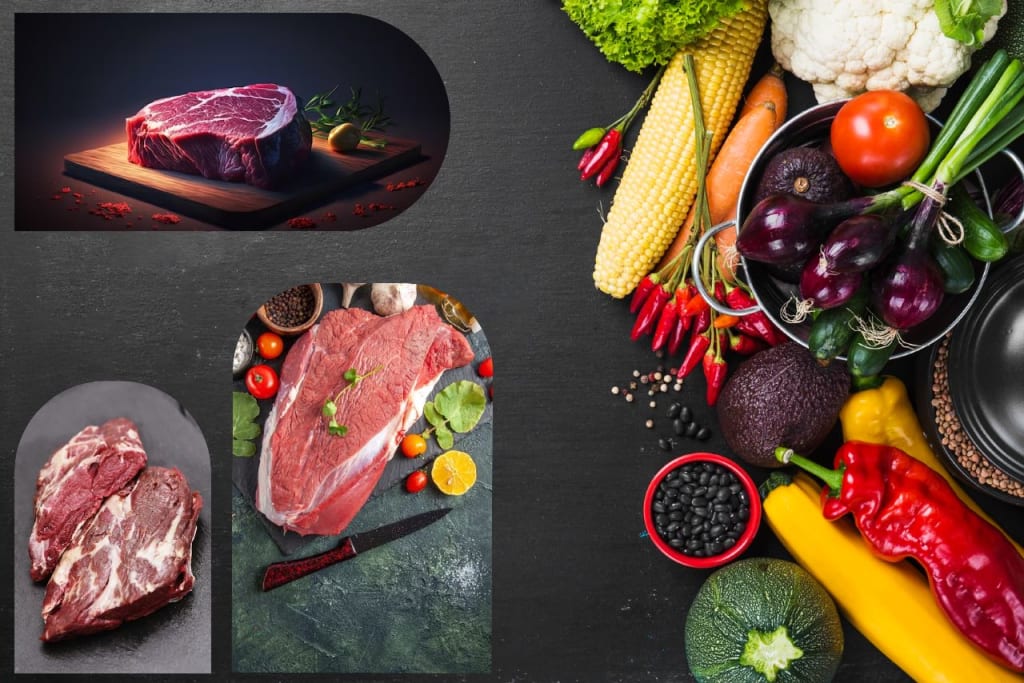
Veganism has become increasingly popular worldwide. For some, the choice to become vegan is motivated by compassion for animals, while others are drawn to the diet for its purported environmental and health benefits. However, there is some debate over the accuracy of these claims. Does a vegan diet really have a significant impact on the environment, or are its effects overstated? Is it a healthy way to eat, or does the absence of animal proteins and nutrients have negative consequences?
Recent studies have begun to shed light on these questions. In terms of environmental impact, the evidence is clear: avoiding meat and dairy products can have a major positive effect. Numerous studies have found that a vegan diet uses less land, conserves more water, and produces fewer greenhouse gases than an omnivorous or even vegetarian diet. Of course, not all vegan foods are created equal; for example, almond milk requires more water to produce than other plant-based milk alternatives. However, overall, transitioning to a vegan or vegetarian diet can significantly reduce your personal impact on the planet.
The question of whether a vegan diet is healthy is more complex. Some of the first athletes to follow a strict plant-based diet were gladiators, who consumed large amounts of legumes, pulses, and grains and little to no animal protein. Recent research has begun to explore whether a vegan diet can enhance athletic performance and promote long-term health. One common question is whether humans evolved as vegetarians or meat-eaters. While we do have sharp canine teeth that seem well-suited for eating meat, these teeth may have evolved for other purposes such as intimidation and defense. Our closest primate relatives, such as chimps, orangutans, and gorillas, mostly follow plant-based diets. However, there is no denying that our species has been eating meat for millions of years; scientists estimate that our ancestors began consuming meat around 2 million years ago. It is thought that changes in our environment led us to turn to meat as a supplement when plant foods became less available.
In conclusion, while there is still much to learn about the benefits and drawbacks of a vegan diet, it is clear that it can have a significant positive impact on the environment. Whether it is the healthiest choice for individuals will likely depend on many factors and may vary from person to person.
Humans have been eating meat for millions of years, but it is possible to survive without it. Some people believe that it is impossible to get enough protein without consuming meat, but this is not true. Plant-based sources such as whole grains, nuts, and beans can provide plenty of protein. In fact, protein deficiency is extremely rare, except in cases where people are not consuming enough calories overall.
One nutrient that is missing from a vegan diet is vitamin B12. This vitamin is required for many biological processes and for normal functioning. It cannot be obtained from vegetables; it is found in animal products such as beef, pork, poultry, fish, and eggs. Studies have found that B12 deficiency is a common problem among vegans and vegetarians. Low levels of B12 can affect brain function, energy levels, and mood, and in severe cases can even cause hallucinations. However, B12 supplements are readily available and can easily prevent this problem.
Another concern for vegans is bone strength. Calcium is an essential nutrient that helps muscles and nerves function properly and keeps bones strong. When calcium intake is insufficient, the body will draw calcium from the bones, potentially weakening them and increasing the risk of fractures. Cow’s milk, which naturally contains calcium and is easily absorbed by the body, is often promoted as a way to maintain strong bones. A 2020 study found that vegans have a higher risk of bone fractures than meat-eaters.
However, the relationship between dairy consumption and bone strength is not straightforward. In countries where dairy consumption is low, such as West Africa, rates of osteoporosis are also low. Studies comparing dairy consumption across countries have found no clear link between milk intake and bone strength. Dairy is not the only source of calcium; it can also be obtained from vegetables such as kale, bok choy, and broccoli, as well as from fortified foods like orange juice and cereal. Even when studies account for calcium intake, vegans who consume plenty of calcium are still more likely to experience bone fractures than non-vegans. This suggests that other factors may be at play.
It’s worth noting that most of the data on this subject pertains to adults; studies on children have found more clear-cut results. Children who drink milk have fewer bone fractures than those who do not. Finally, research has found that both vegans and vegetarians are at a slightly higher risk for stroke than non-vegetarians.
A study found that vegans have a slightly higher risk of stroke, with around three extra cases per 1000 people over 10 years. However, this study had many limitations, including a small sample size, so it is difficult to draw firm conclusions from it.
On the other hand, there are many specific health benefits to going vegan. A large study of over 90,000 people found that vegans are less likely to develop high blood pressure, obesity, type 2 diabetes, and some types of cancer. They are also more likely to live longer. A vegan diet can lower cholesterol levels and is rich in antioxidant phytonutrients and nitrates. In contrast, some animal products contain pro-inflammatory fats. These anti-inflammatory effects may be why vegan diets seem to reduce the risk of some autoimmune diseases. For example, tennis player Venus Williams credits her vegan diet with minimizing the fatigue associated with her Sjogren’s syndrome.
Some studies have even found that a vegan diet is one of the healthiest diets, outperforming pescetarian and vegetarian diets. This may be due to its higher intake of fruits, vegetables, and legumes. People who consume the most plant-based foods have up to a 32% lower risk of cardiovascular disease, even after adjusting for factors such as age, sex, race, education, health behaviors, alcohol intake, and exercise.
Of course, it is possible that vegans are generally more health-conscious to begin with. They tend to smoke less, drink less alcohol, and exercise more than non-vegans. It is not yet clear whether the health benefits of a vegan diet are due to something harmful in meat and dairy or something beneficial in the extra vegetables consumed. It is also worth noting that it is possible to be an unhealthy vegan if one consumes a lot of junk and processed food.
One question that remains unanswered is whether a vegan diet can improve athletic performance. A current study is following 8,000 runners from across Europe to compare the endurance of meat-eaters, vegans, and vegetarians. Some athletes believe that a vegan diet may boost immunity and aid in recovery from injury. Vegetables like beetroot contain nitrates that can improve blood flow and oxygen transport in the body. However, there is currently very little data to support these claims.
In conclusion, a vegan diet is clearly better for the environment. As an individual, it is a simple step you can take to reduce your impact on the planet. In terms of health, there may be some drawbacks to a vegan diet, but these can typically be addressed through careful planning and supplementation. At best, a well-planned vegan diet may be better for your overall health and well-being.
About the Creator
RiceNBean
Hello, I'm so happy to be here bringing positivity to the world!
I really like listening to music, I'm eclectic in terms of style... I'm a basketball lover, a stoic lifestyle practitioner, and I like to learn new things by myself.






Comments
RiceNBean is not accepting comments at the moment
Want to show your support? Send them a one-off tip.